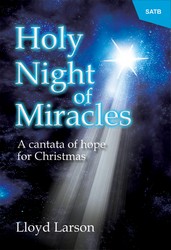- |
User Links
Angels, from the Realms of Glory
Hymn Information
- First Line
- Angels, from the realms of glory
- Author
- James Montgomery (1816, alt.)
- Tune Name
- REGENT SQUARE
- Composer
- Henry Smart (1867)
- Topic
- Church Year: Christmas · Doxologies
Copyright Information
- Text Copyright
- Public Domain
- Tune Copyright
- Public Domain
- Reprint/Projection Information
- Words and Music: The Words and Music are in the Public Domain; you do not need permission to project or reprint the Words and Music.
Full Text
Scripture References
- · · · ·
Thematically related:
- st. 1 = ·
- st. 2 = ·
- st. 3 = ·
- st. 4 = ·
Further Reflections on Scripture References
Perhaps because he knew the psalms so well, Montgomery expresses a cosmic sense in this text: he reaches from Christ's incarnation to the final great day. The text successively incorporates all creatures–the angels (st. 1), the shepherds (st. 2), the wise men (st. 3), all nations ( t. 4), and all people (st. 5)–in the call to “come and worship Christ, the newborn King!”
The text was originally in five stanzas, although many hymnals now delete the fifth stanza. Stanzas 1-3 are from Montgomery's text, which was inspired by the Christmas stories in Luke 2 and Matthew 2. Stanza 4 comes from another Montgomery carol inspired by Philippians 2. Stanza 5 is a doxology (not written by Montgomery) from the Salisbury Hymn Book (1857).
Confessions and Statements of Faith References
Further Reflections on Confessions and Statements of Faith References
Long before his birth, Jesus was promised, and thus he became “the great desire of nations” (stanza 3). When he came, he did as foretold by “gathering all nations to him” (stanza 4).
Our World Belongs to God, paragraph 21 leads us to profess that the Lord promised to be God to Abraham and Sarah and their children, “blessing the nations through them” and shaping them to be a people who will be “a light to the nations.” In these words we catch a glimpse of what Heidelberg Catechism teaches in Lord’s Day 21, Question and Answer 54, that Christ “through his Spirit and Word” will gather a church “from the entire human race.”
This Christmas hymn concludes with a Trinitarian doxology, a reflection of the perspective found in Heidelberg Catechism, Lord’s Day 12, Question and Answer 31 that all three persons of the Trinity are involved in the birth of the newborn King. Christ is ordained by God the Father and anointed with the Holy Spirit.
Angels, from the Realms of Glory
Call to Worship
Words of Praise
Assurance
Angels, from the Realms of Glory
Tune Information
- Name
- REGENT SQUARE
- Key
- B♭ Major
- Meter
- 8.7.8.7 refrain 4.4.6


 My Starred Hymns
My Starred Hymns





